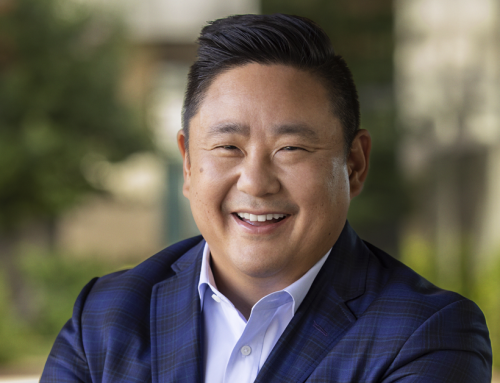In a simple way, AI is speeding us toward an even deeper rut of the left-brain society that we’ve been marinating in since The Enlightenment of the 17th and 18th centuries.
This has led to an overemphasis on logic and analysis, efficiency and standardization, higher rates of mental health issues, and a loss of connection with each other and with nature.
By contrast, the rapid mobilization of AI has created an opportunity for the greatest flowering of humanness, of right brain prominence, since The Renaissance.
Like light contrasts dark, we can contrast AI with a renewed emphasis on holistic, big-picture thinking, community, connection with nature, intuition, and creativity.
In essence, AI has the potential to unleash the humanity in humans. (Yes, I’m being optimistic here!)
Timing?
We are in the very early stages of AI, analogous to the internet circa the early 1990s. But there’s a big difference. AIs like ChatGPT and Bard EAT the internet for input and grow exponentially from it like cancer feeds off sugar and glutamine.
One year of the internet is like a dog year for AI—it will change so much faster. Each day you delay is a week’s worth of decay.
Where is AI heading?
The best way to predict the future is to play with it. For being at such an early stage, AI tools are quite user-friendly, so jump in and start using them. If you haven’t already, start with ChatGPT and Google’s Bard.
AI: Constructive or Destructive?
As we sail into an era increasingly dominated by AI, it’s easy to feel a sense of trepidation. Will machines replace us? Will we become redundant in the face of hyper-intelligent, ultra-efficient AI systems?
The concerns are real.
Geoffrey Hinton, a Turing Award winner and AI pioneer who’s been dubbed “The Godfather of AI,” recently quit his job at Google and is now raising the alarm about AI.
He, and many others, are concerned about the potential for AI to be used for malicious purposes, such as creating autonomous weapons. And, he says, AI has the potential to become so intelligent that it surpasses human intelligence and control. If AI becomes superintelligent, it could pose an existential threat to humanity.
Yet, it’s precisely in these times that we must remember our secret weapon: our humanness. It’s the one thing AI cannot replicate, and it’s becoming more important than ever that we lean into it.
Become More Human
AI has made extraordinary strides in automating tasks, optimizing processes, and emulating human-like conversation—my podcast with ChatGPT in the form of the voice AI “Rachel” is a great example.
However, it’s still fundamentally a tool. It’s a machine that learns from vast quantities of data but lacks the very essence of what makes us human. It lacks the capacity for empathy, feeling, intuition, connection, and the ability to understand context beyond what it’s been trained on.
Counterintuitively, in the face of this technological revolution, our human qualities become our competitive edge. They allow us to connect, create, and understand on a level that AI simply can’t.
Here are three ways you can quadruple down on your humanness.
1. Find and amplify your unique voice.
Each one of us has a distinctive perspective, informed by our experiences, values, and passions. This voice is the foundation of our creativity and the root of our ability to innovate.
AI can process and generate based on existing data, but it cannot create something genuinely new or appreciate beauty and emotion in the way humans can (at least not yet!).
Take, for example, storytelling. An AI can be trained to write a story, but it cannot truly understand or feel the emotional depth, the suspense, the joy, or the sorrow. It’s the human behind the story, the one who breathes life into the characters and connects with the reader, who makes it truly impactful.
Last week, I had conversations with two of my coaching clients about dialing in on their voice and making it stand apart from the sea of sameness that clogs the internet.
One client is making educational videos and we’ve gone through several iterations to make sure that viewers connect with him and his unique personality. We didn’t want a dry recitation of “content” that an AI could do.
A second client is a blunt-talking advisor who rocked an unscripted recent video about a controversial topic, and he nailed it! He was authentic, not “made-up,” and spoke from his heart. Clients and prospects connect with that.
For more details on this topic, read my blog post on Finding Your Voice.
2. Deepen your capacity for emotion and empathy.
Our ability to empathize, to understand unspoken nuances, to comfort, inspire, and connect on a deep emotional level – these are qualities that cannot be programmed.
Think about the last time you met with a recently widowed client. While an AI chatbot could ask “all the right questions,” only you—a human—can extend the human touch, the comforting words, the silent space to process a feeling, and the facial expression that says, “I’m here for you.”
Take any life-changing event like marriage, divorce, childbirth, or winning the lottery. Only a human financial advisor can understand the complex range of emotions they elicit, the nuance they require to navigate, and the depth and breadth of planning needed to adapt to them.
While some AI can mimic emotional responses or recognize emotional cues in human speech or facial expressions, they don’t truly feel or understand these emotions. The aspects of our humanity that can’t be replicated or “felt” by an AI are among the things that clients value most from us.
3. Put your client’s life at the center of the planning conversation.
Yes, money is important, but it’s just a means to an end—not the end. AI will accelerate the commodification of investing and “money-based financial planning.”
If you’re hanging your hat on “retirement income distribution planning,” or answering the question, “Do I have enough money to retire?” the market for that service will shrivel at an accelerating pace.
I asked ChatGPT-4 to develop a retirement income distribution plan for me and it did a credible job. Give the techies 12 months, and I wouldn’t be surprised to see a functioning DIY version on par with an advisor-guided eMoney, MoneyGuide Pro, or elaborate Excel spreadsheet plan.
In fact, Conquest Planning already has an AI-powered sophisticated financial planning system for advisors that could easily be turned into a consumer-facing DIY tool.
But Steve, people said the same thing about the internet and robo-advisors. The sky is falling! Yet the sky never fell, right? Your business is likely much larger than it was 10 years ago.
Well, consider this. We’re in a bull market for financial advice, but NOT a bull market for financial advisors.
The internet, robo-advisors, social media, podcasts, Facebook, Tik-Tok, etc. have dramatically expanded the avenues for people to receive one-to-many financial advice (not saying it’s all great, though). And for many folks, that’s all they need or want.
But organic growth for financial advisors, on average, has been flat for the five years ending 2021—despite being in a big bull market. Rather than rehash my analysis of that, see my post here.
The typical advisor grew their business over the past 10 years because markets went up, or they acquired practices. I think the increasingly easy access to AI, generational change, slowing population growth, economic factors, and changing business models are coalescing to dramatically change the demand for traditional AUM-based investment management and financial planning.
That’s why it’s imperative for advisors to shift their emphasis from money planning to life planning.
I don’t care whether you call it life planning, lifestyle planning, human-focused financial planning, whatever. The point is we have to shift toward making the client’s life central to the conversation, not the performance of their money. We’ll still do “money planning” for the population segment that wants to delegate, but it will be greatly aided and automated by AI.
This means retraining advisors and repositioning what this industry is all about. And it’s happening.
In the previous issue of GTK, I wrote about my podcast with Dan Haylett. Dan delivers “Human-Focused Financial Planning.” That email went to thousands of advisors and had a 54% open rate and a significant double-digit click through rate—one of my highest ever.
In 2017, Mitch Anthony and I started ROL Advisor. ROL stands for Return on Life. Since then, we’ve trained hundreds of advisors from 13 countries on how to shift from a return on investment focus to a Return on Life focus. I invite you to receive (for free) our 7-day email course on what it means to be a Life-Centered Planner. Get it here.
Bionic is Back
Do you remember the “Bionic Advisor” idea from a decade ago? Turns out robo-advisors didn’t make advisors bionic, it’s the broad spectrum of AI that will.
Here’s the key: It’s not AI or Humanness, it’s AI + Humanness.
Let’s use AI as a catalyst to highlight the importance of our irreplaceable human qualities.
By finding our voice, deepening our capacity for emotion and empathy, and putting our client’s life at the center of the planning conversation—coupled with leveraging AI—we can not only compete with AI, but thrive in this new era.





